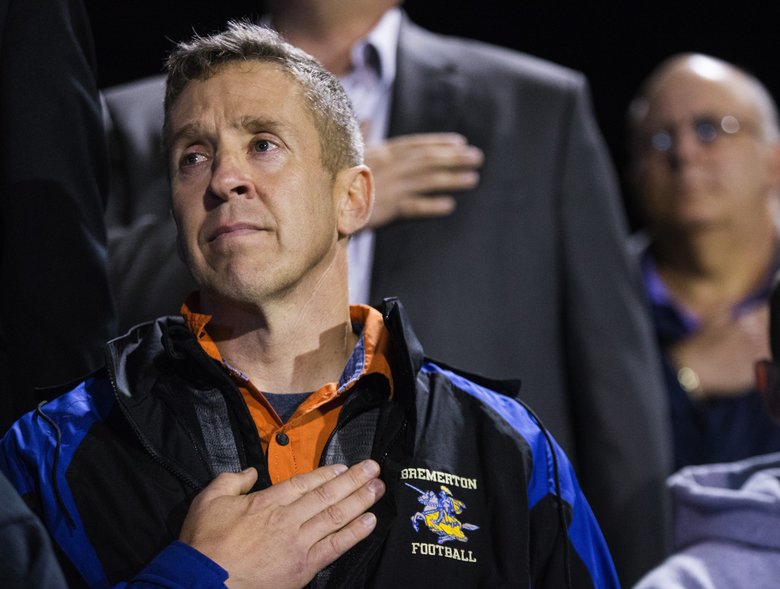Penna Dexter
A three-judge panel from the U.S. Court of Appeals for the Ninth Circuit has ruled that a school may ban a coach from praying silently, alone, on the field after a game.
Coach Joe Kennedy served our country as a Marine. Upon retirement he went to work as a football coach for Bremerton High School in Washington State.
After games, he would wait until the players had cleared the field and then walk out, take a knee, and silently thank God for the opportunity to coach his players and for their hard work in the game. The prayer lasted 15 to 30 seconds.
No one complained. The coach never intentionally tried to get anyone to join him, though students and parents often did. After seven years of allowing these prayers, school authorities told Coach Kennedy to stop them. He didn’t, but continued the prayers — alone.
In October 2015, Coach Kennedy was fired.
With help from First Liberty Institute, Coach Kennedy sued the school district. He is not seeking monetary damages. He told reporters, “I just want the ability to go back out there and help these young men, and also have my constitutional rights that I fought for in the Marine Corps for 20 years.”
The opinion states that the coach was acting as a public employee, not a private citizen. Therefore his free speech rights were not protected.
The opinion articulates a concern that people are left out on these occasions and that actions such as prayer could “promote disunity along religious lines.” It states that students are “impressionable and captive.”
Kelly Shackelford, one of Coach Kennedy’s attorneys told FOX host Shannon Bream, “It’s almost like prayer is the new pornography. If you pray where people see you, that’s a violation.”
When asked why it was important that he pray on the 50-yard line the coach explains: It’s “on the battlefield where we fought the battle.”
Instead of an end zone “victory dance,” this coach chooses to quietly give glory to God. He’s a Marine. This battle is not over.
 Listen Online
Listen Online Watch Online
Watch Online Find a Station in Your Area
Find a Station in Your Area











 Listen Now
Listen Now Watch Online
Watch Online
